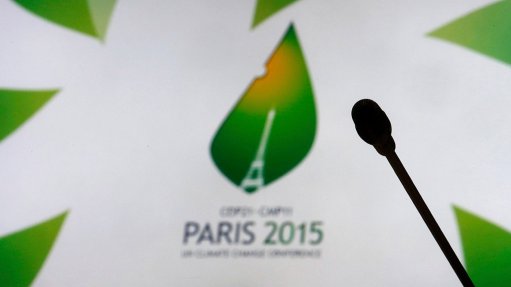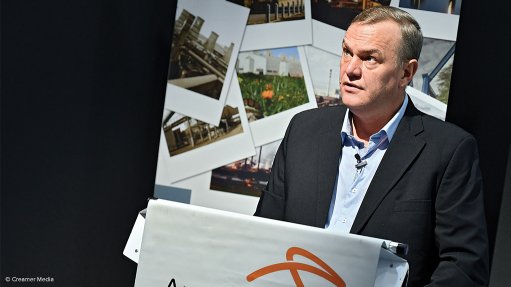Another bad report card
I wrote this piece on June 6, which was reminiscent of the days gone by when your teacher gave you your school report in a sealed envelope addressed to you parents. Back then, you had the power to delay its delivery somewhat. I also remember a time when the International Monetary Fund (IMF) released its ‘report card’ on South Africa and a hard copy had to be collected from the National Treasury’s offices in Pretoria. There was always much emotion as it was opened by our chief economist.
Once the ‘report card’ was opened, the chief economist would scan the ‘Key Issues’ before handing it to his assistant to run a few copies, after which copies would be given to all to read in the boardroom. Opinions would then be solicited and our chamber’s response prepared.
The electronic copy of the IMF’s Staff Report for the 2023 Article IV Consultation has arrived in my inbox. If you need reminding, under Article IV, the IMF holds annual bilateral discussions with member countries before issuing a press release summarising the views of the executive board, the staff report, an informational annex prepared by the IMF staff and a statement by the IMF’s country executive director. As I scanned the ‘Key Issues’ in the press release, I got lost at “South Africa’s strong economic recovery from the Covid-19 pandemic is petering”. My thoughts turned to: How does one convey bad news?
The IMF would have done well to visit the website www.lingualbox.com, which offers ‘15 Helpful Suggestions When Telling a Bad News In English’. The first tip is preparing the receiver for the bad news by using an opening statement like “I’m really sorry to have to say this but . . .” The second is to provide background information about the bad news and then proceed to say something like: “Unfortunately, there are some problems with . . .” Additionally, stick to the facts and don’t include unnecessary details or any excuses (the IMF fails on this score from the outset).
The fourth hint is to be objective and avoid blaming others, while the fifth is to organise your narrative, which requires gauging how prepared the recipient is for the bad news and how much he or she can take. (The IMF should not be too concerned about the latter hint, as South Africa has excess capacity for bad news.)
Yet other hints are to not sugar-coat (and here I fear another fail from the IMF, which tends to be overoptimistic) and to use positive language, thus preventing the bad news from sounding too bad and reducing the anxiety – but we shouldn’t worry, as I am sure that there isn’t any angst in government anymore about receiving bad economic news.
The www.lingualbox.com also encourages deliverers of bad news to use empathetic statements like “I can see that you’re really upset and angry . . .” and to express some apology for the failure (but my view is that if anyone should be apologetic it isn’t the IMF, except for not being harsher in its report).
Deliverers of bad news, according to www.lingualbox.com, should also offer possible alternatives, solutions, or hope; provide further details by answering questions; listen; deal with silence appropriately; acknowledge other people’s feelings; and wrap up the message well, with a useful expression being something like: “I hope everything will get better soon.” My retort to this is: Really? I fear the next Article IV will be much the same. The IMF officials might want to use a search engine to establish “how one should convey bad news that you have already delivered in a different way”.
The news is bad, but that you already knew.
Comments
Press Office
Announcements
What's On
Subscribe to improve your user experience...
Option 1 (equivalent of R125 a month):
Receive a weekly copy of Creamer Media's Engineering News & Mining Weekly magazine
(print copy for those in South Africa and e-magazine for those outside of South Africa)
Receive daily email newsletters
Access to full search results
Access archive of magazine back copies
Access to Projects in Progress
Access to ONE Research Report of your choice in PDF format
Option 2 (equivalent of R375 a month):
All benefits from Option 1
PLUS
Access to Creamer Media's Research Channel Africa for ALL Research Reports, in PDF format, on various industrial and mining sectors
including Electricity; Water; Energy Transition; Hydrogen; Roads, Rail and Ports; Coal; Gold; Platinum; Battery Metals; etc.
Already a subscriber?
Forgotten your password?
Receive weekly copy of Creamer Media's Engineering News & Mining Weekly magazine (print copy for those in South Africa and e-magazine for those outside of South Africa)
➕
Recieve daily email newsletters
➕
Access to full search results
➕
Access archive of magazine back copies
➕
Access to Projects in Progress
➕
Access to ONE Research Report of your choice in PDF format
RESEARCH CHANNEL AFRICA
R4500 (equivalent of R375 a month)
SUBSCRIBEAll benefits from Option 1
➕
Access to Creamer Media's Research Channel Africa for ALL Research Reports on various industrial and mining sectors, in PDF format, including on:
Electricity
➕
Water
➕
Energy Transition
➕
Hydrogen
➕
Roads, Rail and Ports
➕
Coal
➕
Gold
➕
Platinum
➕
Battery Metals
➕
etc.
Receive all benefits from Option 1 or Option 2 delivered to numerous people at your company
➕
Multiple User names and Passwords for simultaneous log-ins
➕
Intranet integration access to all in your organisation


















